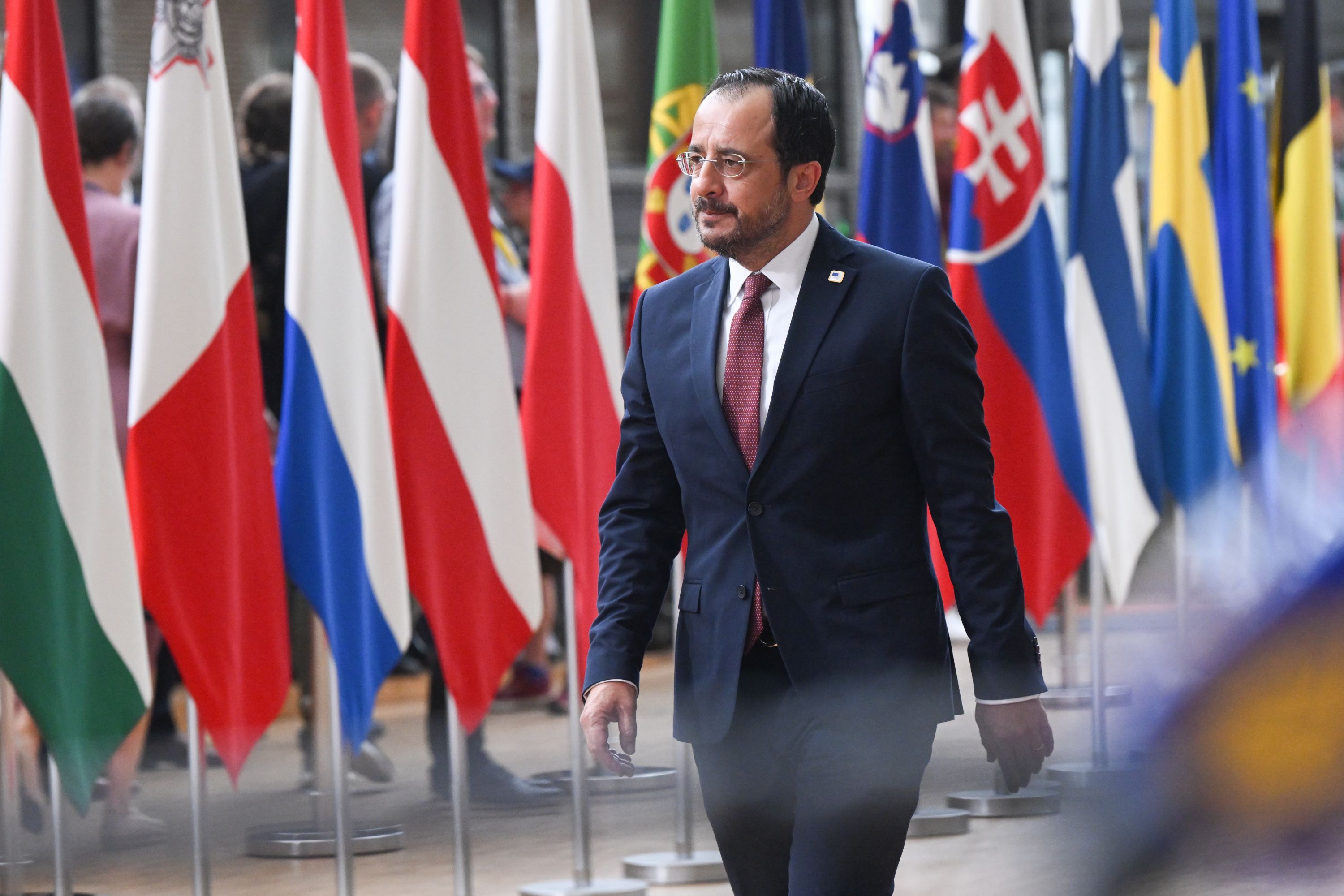The European People’s Party has included the Cyprus problem in its list of top 10 priorities, President Nikos Christodoulides announced in Brussels on Thursday, amid a flurry of meetings linked to the Cyprus problem, top EU posts and the Middle East.
Speaking from the Belgian capital, Christodoulides heralded the European People’s Party decision to include the Cyprus problem in its 10 key priorities for the next five years.
A draft of the EPP text seen by the Cyprus Mail read: “Continuing our strong EU support to UN efforts to reunify Cyprus, in line with UN Security Council resolutions, EU law, values and principles. We stand ready to tangibly promote and upgrade the UN-led efforts.”
Christodoulides said this was a feat accomplished with the help of House president Annita Demetriou.
The inclusion of the Cyprus problem is an indication “of the messages we send to Cyprus but also the messages we send to the international community”.
Likewise Demetriou said that the Cyprus issue making it on the EPP’s top 10 list was thanks to “coordinated efforts” between herself and Christodoulides.
Demetriou attended in her capacity as leader of the Disy party, which is a member of the EPP.
In other remarks, she said Disy “is invested in upgrading the European defence union, particularly through Pesco, and chiefly by dealing effectively and holistically with irregular migration, protecting our external borders and strengthening Frontex”.
Pesco, or Permanent Structured Cooperation, is the part of the EU’s security and defence policy in which 26 of the 27 national armed forces pursue structural integration (the exception being Malta).
The development in Brussels comes as Christodoulides also met with the UN Secretary General’s personal envoy Maria Angela Holguin. Following the meeting, the president announced he would be convening a National Council meeting on his return to Cyprus to brief political party leaders.
Christodoulides also stressed the need for the EU Council to reach a conclusion on the Middle East, particularly after the ‘warnings’ Cyprus has received. He was referring to the threats by Hezbollah leader Hassan Nasrallah that his organisation would include Cyprus as “part of the war” should it continue to let Israel use its airport and bases.
The government referred to the claims as baseless.
Certain countries are attempting to escalate the situation, and as such, the “European Union today needs to send out strong messages”.
Meanwhile the president said he had exchanged a number of messages with Italy’s Prime Minister Giorgia Meloni the previous day and both had agreed to meet in Brussels ahead of the European Council summit.
Meloni has voiced strong opposition over a deal dividing the EU’s top jobs between mainstream pro-European parties. She has argued it ignored the bloc’s rightward shift.
Arriving at the European Council, spanning Thursday and Friday, Christodoulides said Meloni had shared some of her thoughts with him.
“I have to say that on some of the matters she brought up, I see and recognise that she’s right. This is why we have agreed to meet before the European Council and see what role we can play so as to have results.”
Key on the European agenda is who will take on the helm of Commission president, with incumbent Ursula von der Leyen set to be nominated for a second term.
The two other posts are European Council president which former Portuguese PM Antonio Costa of the Socialists and Democrats could get, and the other is of the EU foreign policy high representative.
Current Estonian PM Kaja Kallas, of the centrist Renew Europe party is pegged for the post.
“No one will be 100 per cent happy” with the results, Christodoulides underlined. Nonetheless, he expressed the hope that an agreement could be clinched by Thursday “as there are serious challenges ahead which we must focus on.”







Click here to change your cookie preferences